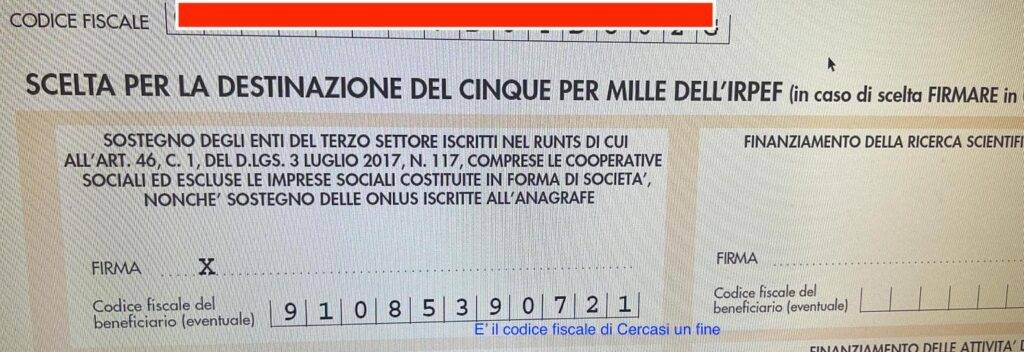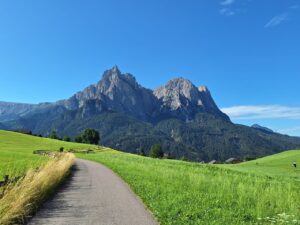Donald Trump, from next January, will preside over the United States of America, the longest-lived modern democracy in the world, which, with its outs and weaknesses, has never experienced destabilizing dangers that could lead it to forms of tyranny or dictatorship, not even in the very bad moments of the civil war (1861-1865) and the attack on the Twin Towers (2001). Now, perhaps, there is a high risk of falling into a degeneration of democracy, not a “copy” of dictatorships or totalitarianisms of the last century (Soviet social communism, Nazism, fascism, Francoism and the like in the world) but something that is very close to them. These new systems are called soft dictatorships, cesarean states, mild monsters (R. Simone) These are apparently democratic political structures, but in fact dictatorial kingdoms, which betray fundamental democratic principles. The beginning of degeneration is marked by the emergence and affirmation of populist politicians.
Donald Trump is a populist and, according to statements and acts already seen in his first term, he could, together with his staff and political and financial supporters, fer the USA into a soft dictatorship. In my humble opinion, this is the first problem that the Democratic Party has: the sacrosanct duty to study, monitor and operate so that this does not happen. This is not just a US problem: Trump is in good company. They are populists, with different attitudes, strategies and purposes, leaders such as Erdogan, Salvini, Meloni, Le Pen, Grillo, Renzi, Chavez, Orban, Putin and so on. They are absolutely not the same – for human, ethical, historical and political traits – but they have several things in common (The Guardian on line, The new populism).
Populism is a democratic disease that has two important poles: the people and the leader. Regarding the people, it must be said that, in general, it is a people that is not well defined, united by needs or a state of crisis, in cultural and economic distress, which feels orphaned by real representatives of its interests, almost in a perennial state of resistance and besieged by some historical social enemies (Jews, immigrants, foreigners, blacks and so on). The populist politician presents himself to this type of people and asks for consensus, showing the claim of being the only one suitable to represent people’s fundamental interests and solve their problems. The populist is not very respectful of democratic rules and procedures, in constant contact with his people, especially on social media and here, for Trump, the support of the questionable Elon Musk must be remembered. Populists are also normally characterized by Egos as large as half of the USA and in equal measure by vulgarity, lack of respect for people and institutions and stupidity of all kinds (on the matter, regarding Trump, I agree with Gianni Cipriani’s analysis, here: https://www.globalist.it/world/2024/11/06/la-vittoria-di-trump-e-limbarbarimento-della-societa-serve-uninternazionale-della-civilta-e-della-cultura/).
But why do many vote for them and, wrapped up, even worship the populists? Why did the voters (the turnout data are still missing) prefer Trump (72 ml) to Kamala Harris (68 ml)? Why has the consensus for Trump grown in some historical groups, such as the middle class, Latinos, etc.? In my humble opinion for a mix of ignorance, economic and social fears and search for the “savior of the homeland”. I express some concise and limited considerations.
Ignorance. Populists win in countries that have little political training and, above all, have serious cultural, school and university problems. Countries where: illiteracy is high (first or back); there is a crisis of large sectors of school and university; reduced, monothematic and not very interdisciplinary knowledge, ephemeral, extremely dependent on the superficiality of different online sources. Not only civic, social and political training is missing, tout court training is missing. It is no coincidence that when captured in English we say educated. This is, therefore, the situation in large strata of the population. The causes of the phenomenon are many. I emphasize one. The disengagement of intellectuals and teachers, left and right in forming not only their students, but also groups and associations, especially in popular and culturally poor neighborhoods. It is easy to complain and judge negatively those who follow the populists of the moment: but, beyond individual responsibilities, how many are those of the political, academic, intellectual, media, ecclesial world? In particular, the educational data is closely intertwined with that of today’s communication (on the subject the reading of Infocracy of B-C. Han is enlightening).
Fears. The less you know, the more you’re afraid. The more you close yourself in forms of individualism, selfishness, racism and homophobia, the more fears grow, often unfounded. Populists know this well, they manipulate data to increase fears and thus present themselves as problem solvers. But more than solving problems, they are interested in taking the vote and being elected, in consolidating positions of power and, often, in favoring, even in a corrupt and illegal way, relatives and friends who have supported them. Fears and problems must be resolved together, with a political class of high human, ethical and professional profile and with the participation of citizens in different forms.
The “saviors of the homeland”. The deficit of political training, whether Christian or secular, brings out the deep need to believe in a character who proposes himself as omniscient, powerful, capable of protecting and taking care of the individual. It’s called Gnostic politics. Lacking today’s form of discernment, we follow political men whose common denominator is the combative, assertive, narcissistic, reassuring, decision-making and almighty attitude, as if they were demigods. Ignorance seems to be the ground on which this idolatrous passion grows. It is no coincidence that Milani wrote on the wall of his classroom: “the worker knows 100 words, the master 1000, for this he is the master”. It is knowledge, first of all, that has made someone master and the worker often suffers precisely because he knows less. It is the ignorance of citizens one of the elements that strengthens the new demagogic leaders. A few years earlier Bonhoeffer, by the way, would have said that “the power of one requires the stupidity of others”.
One last note. “Many people have told me that God saved my life (in the July 13 attack in Pennsylvania ed) for a reason. And the reason was to save our country and make America big again,” Trump said during the victory speech in Florida. (Reuters, 6.11.24). It will be these sentences, it will be the promise to fight against permissive abortion laws, will it be more (promises of economic support?) But several US Catholics like Trump (cardinals, bishops, priests and lay faithful). Nothing new under the sun (Qoelet 1,9). They also existed during fascism, they were called cleric-fascists and, as Sturzo wrote, “80% are more clerical than Catholic”.
Looking at the images of Trump’s victory and thinking back to the history of this great country, the memory went to a page of Alexis de Tocqueville, who almost two centuries ago, wrote in his De la démocratie en Amérique: “If I try to imagine the new aspect that despotism may have in [our] world, I see an innumerable crowd of equal men, intent only on obtaining small and vulgar pleasures, with which to satisfy their desires. Each of them, keeping aside, is almost alien to the fate of all the others: his children and his friends form for him the whole human species; as for the rest of his fellow citizens, he is close to them, but does not see them; he touches them but does not hear them at all; he lives in himself and for himself and, if he still has a family, it can be said that he no longer has a homeland. Above them rises an immense and protective power, which only in charge of securing their goods and watching over their fate”.
[Rocco D’Ambrosio (www.rocda.it) is full Professor of Political Philosophy and Political Ethics in the Faculty of Philosophy at the Pontifical Gregorian University in Rome and Professor of Ethics of Public Administration at the Department of Personnel Training of the Ministry of the Interior, Rome. He is also president of Cercasi un fine (“Seeking for a Goal”), an Italian organization for people of various religions and cultures united in seeking a more just, peaceful and beautiful society www.cercasiunfine.it]
The Italian version of the article is on this website here








